|
Please help us to
improve the
Wikipedia article |
|
Announcements |
|||
| Mar 27 | Closing ceremony presentation. | ||
| Dec 10 | The proceedings of the conference or revised versions of the papers have been, or will be, published in the following sources: LNCS 7816, LNCS 7817, RCS 70, CyS 17(2), Polibits 47, IJCLA 4(1), IJCLA 4(2). | ||
| Mar 31 |
Thank you for attending the conference! See you at the
next conference. We would like to publicly share your photos. Please upload your photos to our FTP site (make a directory with your name), or upload them elsewhere and send us a URL. If you want the photos to be attributed, then please include in the directory a text file with your name or text of attribution. We would like to publicly share your presentation. Please upload your presentation to our FTP site or send it to us. You can make changes or take out material that you do not want to be publicly shared. If you already sent / uploaded your presentation and want us to share it as is, please send us a message expressing your permission (please mention the title of the presentation and/or paper ID). |
||
14th International Conference on Intelligent Text Processing and Computational Linguistics
March 24–30, 2013. University of the Aegean, Samos, Greece
Endorsed by the Association for Computational Linguistics (ACL)
Publication:
Springer
Lecture Notes in Computer Science
(anticipated);
posters: a separate issue of a journal
Cultural program: full-day tours to
Ephesus, Samos, and
Patmos (anticipated).
Keynote: Sophia
Ananiadou, Walter Daelemans,
Roberto Navigli,
Michael
Thelwall
Awards: best paper, best presentation, best poster,
best software
See our verifiability, reproducibility, and
working description policy
Volunteer
helpers wanted!
See also photos of past CICLing events
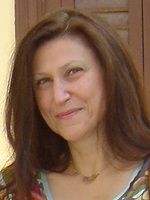 |
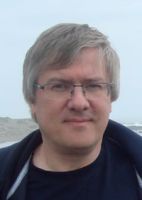 |
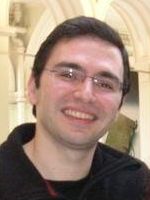 |
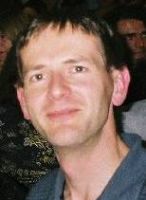 |
|||
|
Sophia Ananiadou U. of Manchester |
Walter Daelemans U. of Antwerp |
Roberto Navigli Sapienza U. of Rome |
Michael
Thelwall U. of Wolverhampton |
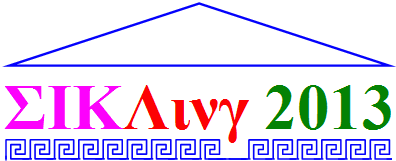
Call For Papers
This conference is the thirteenths CICLing event. Some comments about past CICLing conferences include: Best NLP conference in Europe (Dan Tufiş, 2010), Fantastic conference! (Martin Kay, 2004), Everything was just great! Super-hyper-ultra-well done! (Igor Mel'cuk, 2000). We consider the following factors to define our identity:
![]() High
reputation. CICLing is one of leading NLP conferences,
ranked 8th in
the NLP category by ArnetMiner and B by
the
CORE list. Its PoP h-index
is 23, which is below top conferences like ACL but above a number of other very
decent NLP conferences.
High
reputation. CICLing is one of leading NLP conferences,
ranked 8th in
the NLP category by ArnetMiner and B by
the
CORE list. Its PoP h-index
is 23, which is below top conferences like ACL but above a number of other very
decent NLP conferences.
![]() Good publication. The Lecture Notes in Computer Science (LNCS)
published by
Springer is a prestigious book series /
journal highly valued in many countries for university promotion. CICLing is
included in ISI Conference Proceedings Citation Index, EI, and a number
of other important indices.
Good publication. The Lecture Notes in Computer Science (LNCS)
published by
Springer is a prestigious book series /
journal highly valued in many countries for university promotion. CICLing is
included in ISI Conference Proceedings Citation Index, EI, and a number
of other important indices.
![]() Excellent
keynote speakers. We invite the most prominent scientists of the
field to give keynote talks that (unlike other conferences) are published
in extenso in the proceedings. Each keynote speaker also organizes an additional tutorial or
discussion. They usually participate in the cultural program, where you can interact
with them in an informal environment. [Past
participants' opinions]
Excellent
keynote speakers. We invite the most prominent scientists of the
field to give keynote talks that (unlike other conferences) are published
in extenso in the proceedings. Each keynote speaker also organizes an additional tutorial or
discussion. They usually participate in the cultural program, where you can interact
with them in an informal environment. [Past
participants' opinions]
![]() General interest.
The conference covers nearly all topics related to computational linguistics and
NLP. This
makes it attractive for people from different areas and leads to vivid and
interesting discussions and exchange of opinions.
General interest.
The conference covers nearly all topics related to computational linguistics and
NLP. This
makes it attractive for people from different areas and leads to vivid and
interesting discussions and exchange of opinions.
![]() Informal interaction.
The conference is intended for a
rather small group of
professionals. This allows for informal and friendly
atmosphere, more resembling a friendly party than an official event. At CICLing,
you can pass hours speaking with your favorite famous scientists who you
scarcely could even greet in the crowd at large conferences.
Informal interaction.
The conference is intended for a
rather small group of
professionals. This allows for informal and friendly
atmosphere, more resembling a friendly party than an official event. At CICLing,
you can pass hours speaking with your favorite famous scientists who you
scarcely could even greet in the crowd at large conferences.
![]() Excellent cultural program. The conference is
intended for people feeling themselves young in their souls, adventurous
explorers of both science and life. Our cultural program brings the
participants to unique marvels of history and nature often hidden from ordinary
tourists.
Excellent cultural program. The conference is
intended for people feeling themselves young in their souls, adventurous
explorers of both science and life. Our cultural program brings the
participants to unique marvels of history and nature often hidden from ordinary
tourists.
![]() At
a past CICLing, Greek authors received a Best Paper Award.
At
a past CICLing, Greek authors received a Best Paper Award.
![]() Samos
is one of the most remote parts of Europe, near to interesting places that we
usually don't have an opportunity to visit.
Samos
is one of the most remote parts of Europe, near to interesting places that we
usually don't have an opportunity to visit.
![]() Still,
Samos is within the administrative borders of Europe, which may be crucial for
many people to get funding for the travel.
Still,
Samos is within the administrative borders of Europe, which may be crucial for
many people to get funding for the travel.
![]() Did
you know
Pythagoras,
Aristarchus,
Epicurus lived on Samos? The triangle in CICLing 2013 logo
refers both to Greek architecture and to the
Pythagorean theorem.
Did
you know
Pythagoras,
Aristarchus,
Epicurus lived on Samos? The triangle in CICLing 2013 logo
refers both to Greek architecture and to the
Pythagorean theorem.
![]() Why
not?
Why
not?
Organization
CICLing 2013 is hosted by the University of the Aegean and organized by the CICLing 2013 Organizing Committee in conjunction with the Natural Language and Text Processing Laboratory of the CIC, IPN.
In general, we are interested in whatever helps, will help eventually, or might help computers meaningfully deal with language data.
The conference is intended to encourage exchange of opinions between the scientists working in different areas of the growing field of computational linguistics and intelligent text processing. Our idea is to get a general view of the state of art in computational linguistics and its applications.
Areas of interest include, but are not limited to, the following topics, provided that the work is presented in computer-related or formal description aspects:
|
Computational linguistics research: |
|
|
|
|
Intelligent text processing and applications: |
|
|
|
We welcome works on processing any language (not necessarily English), though major languages are of more general interest. When discussing phenomena of languages other than English, please keep your discussion understandable for people not familiar with this language.
You can have a look at the contents of the proceedings of past CICLing events to get an idea of our interests. If not sure whether your topic is of interest, please ask us.
Traditionally, our keynote speakers give a formal talk, which is also published in extenso in the proceedings, and also organize a "special event" (a discussion, tutorial, experiment, or something just interesting). Such events, as well as publication of the keynote talks in the proceedings, are distinctive features of CICLing. [Past participants' opinions]
 |
Sophia Ananiadou,
University of Manchester Keynote talk: Enhancing Search: Events and their Discourse Context Event-based search systems have become of increasing interest. This talk provides an overview of recent advances in event-based text mining, with an emphasis on the biomedical and social history domains. In particular, the talk will cover the enrichment of events with information relating to their interpretation according to surrounding textual and discourse contexts. I will describe our annotation scheme used to capture this information at the event level, report on the corpora that have so far been enriched according to this scheme and provide details of our experiments to recognise this information automatically. Special event: NLP web services for dummies My team is very wired up with interoperability and web services. We have developed a platform called U-Compare which is basically a library of processing components and resources in different languages. It has also figured in the Meta-net network. So an idea is to divide the interested participants of the conference either into language groups (Spanish, Portuguese, English, Romanian, Catalan, Maltese, French, etc ) or into language component groups (parsing, NER, tagging, etc) and ask them to play with the different components and come up with different workflows which will be exported as web services. This will happen via a GUI (so no programming). We will give a quick introduction and demo and then we can have fun. Requirements: one laptop for each group, wifi, Java 1.6 and voila. |
|
 |
Walter Daelemans, University
of Antwerp Keynote talk: Explanation in Computational Stylometry Computational stylometry, as in authorship attribution
or profi ling, has a large potential for applications in diverse areas:
literary science, forensics, language psychology, sociolinguistics, even
medical diagnosis. Yet, many of the basic research questions of this
field are not studied systematically or even at all. In this
presentation I will show how a machine learning framework can help
computational stylometry escape from the limitations of a text
categorisation approach. I will also show how better feature selection
and error analysis can lead to more explanation in computational
stylometry. I will illustrate with recent projects at CLiPS on
computational stylometry for personality profiling and internet
security. Special event:
The CICLing Would I Lie to You Show In this session you will learn a bit about detecting deception in
text, but you will also learn some interesting stories about your
colleagues. |
|
 |
Roberto Navigli,
Sapienza University of Rome Keynote talk: BabelNet and OntoLearn Reloaded: two "juicy" perspectives on lexical knowledge acquisition In the information society, lexical knowledge is a key skill for understanding and decoding an ever-changing world. Indeed, lexical knowledge is an essential component not only for human understanding of text, but also for natural language driven tasks such as automated text understanding, information retrieval and question answering. Unfortunately, building such lexical knowledge resources manually is an onerous task requiring dozens of years - and furthermore it has to be repeated from scratch for each new language. In this talk I present two different approaches to lexical knowledge acquisition. In the first part, I will present BabelNet 1.1, a very large multilingual semantic network and ontology (www.babelnet.org). This lexical resource is created automatically by linking the largest multilingual Web encyclopedia – i.e., Wikipedia – to the most popular computational lexicon of English – i.e., WordNet. The integration is performed via an automatic mapping and by filling in lexical gaps in resource-poor languages with the aid of Machine Translation. The result is an "encyclopedic dictionary" that provides more than 5.5 million babel synsets, i.e., concepts and named entities lexicalized in many languages and connected by large amounts of semantic relations. In the second part of the talk we will move to a more extreme setting, where taxonomically-structured knowledge is extracted from domain corpora with minimal human intervention (i.e. the identification of a small set of upper level abstract concepts). Our approach to ontology learning, called OntoLearn Reloaded (lcl.uniroma1.it/ontolearn_reloaded), learns both concepts and relations entirely from scratch via the automated extraction of terms, definitions and hypernyms. This results in a very dense, cyclic and possibly disconnected hypernym graph. The algorithm then induces a taxonomy from the graph. Our experiments show that we obtain high-quality results, both when reconstructing WordNet sub-hierarchies and when building brand-new taxonomies in specialized domains. Special event: Playing with words and senses in different languages We will have an interactive online session on playing linguistic games involving words and senses in different languages. A discussion will follow. Please come with your laptop! Fun is guaranteed! |
|
 |
Michael
Thelwall, University of Wolverhampton Keynote talk: Damping Sentiment Analysis in Online Communication: Discussions, Monologs and Dialogs Sentiment analysis programs are now sometimes used to detect patterns of sentiment use over time in online communication and to help automated systems interact better with users. Nevertheless, it seems that no previous study has assessed whether the position of individual texts within on-going communication can be exploited to help detect their sentiments. This talk assesses apparent sentiment anomalies in on-going communication -- texts assigned significantly different sentiment strength to the average of previous texts -- to see whether their classifications can be improved. The results suggest that a damping procedure to reduce sudden large changes in sentiment can improve classification accuracy but that the optimal procedure will depend on the type of texts processed.
Special event:
Publication strategies, impact and careers: How can I
make sure that my research gets the attention that it deserves?
Please come along to this event ready to share your publication
experiences and to hear about others' experiences. The objective is to
think through the options that we have for publishing and disseminating
research and the impact that these choices may have on our careers. For
example, many people now tweet their publications: is this boasting or a
useful way to ensure that your work gets noticed? |
|
Expression of interest |
passed |
|
Full text of registered papers |
passed |
|
Notification of acceptance |
passed |
|
Camera-ready for LNCS |
passed |
|
Camera-ready for journals (not LNCS) |
still to be announced, don't worry |
|
Registration (authors) |
Early: Feb 15 (required for publication; contact us if a problem) |
|
Conference |
March 24–30, 2013 |
Submitting a paper constitutes a consent for publication and a promise in case of acceptance to attend the conference and to pay the fee. See more details in the legal notices.
VERY IMPORTANT: Please fill in the REGISTRATION FORM to reserve your seats for the tours, prepare your badge, etc. This is not the same as payment portal.
By submitting a paper, at least one author has thereby promised, in case of acceptance, to pay the registration fee:
| Early* | Late | |||
| EUR | USD | EUR | USD | |
| Full | 450 | 600 | 550 | 735 |
| Student | 300 | 400 | 400 | 535 |
The fee is per participant and per paper. I.e., for each paper, at least one fee is to be paid: if a participant presents two papers, two fees are to be paid. On the other hand, a participant that does not present any paper should pay a fee.
The early registration deadline is extended to February 15. *Authors of accepted papers should pay the fee before this deadline in order for their papers to be published. Payment instructions will be announced here when ready. For questions, please contact us at the registration@ address as indicated here. The figures in dollars are for information purposes only and can vary. Please pay in Euros.
To pay the fee, please go to the payment portal, select your type of registration fees (regular/student) and (optional) a number of extra pages in the proceedings and a number of accompanying persons in the tours of the cultural program. When you complete the payment of the fees, you will get a Registration Number; please keep it for future reference.
Why this fee?
We do our best to keep the fee as low as possible. In particular, CICLing is run in a non-profit manner: nobody of the organizers receives any remuneration.
CICLing gives much more than most conferences do. In particular, CICLing provides a greater number of keynote speakers, a much wider cultural program, lunches on all working days; this inevitably affects the fee. Lowering the fee beyond reasonable level would greatly decrease the quality of the conference and the benefits for its attendees, while making negligible difference for the budget of most participants, because:
Most universities allocate sufficient funding for attending conferences;
The fee is a minor part of your total expenses, as compared with the airplane tickets and lodging.
In addition to the expenses for each participant, the fee includes a number of waivers for poor students. Namely:
If you pay: You pay a bit more than is spent on your participation: you also pay for students from poor countries;
If you don't: A waiver does not mean waiving the fee; instead, it means that others pay for you. Your waiver increases the fee for all.
The full fee is higher than real expenses per participant, because it includes part of the student's expenses. The student fee is lower than real expenses, because non-students partially pay for the students.
We will likely have little or no governmental funding (please let us know if you can help in any way in, or give advice about, obtaining sponsorship or another kind of help).
On reduced registration fee: A limited number of reduced fees will be available. To apply, please contact us and thoroughly justify your application. Eligible for reduced registration are people from underdeveloped countries in case if their institutions have real difficulties paying the full fee (generally not included: North America, Western Europe, China, South Korea, Japan, but if you feel your situation is really different, try applying anyway). Authors must apply for reduced registration (clearly indicating the discount amount) before submission of their paper, and also must tick the group "[X] Discount or waiver is requested" in the web submission system. No applications will be considered for already reviewed papers. Notes:
Though all papers are judged by strictly academic criteria, in borderline cases and between papers of comparable quality we may give preference to papers with fully paid fee.
Though we will do our best for this not to happen, we cannot guarantee providing some material (including the proceedings) to participants with reduced fee. Also, in case of lack of seats in the excursion bus we will have to give preference to fully registered participants.
We are interested in a few volunteer helpers, please contact us. Speakers of the local language and residents of the local venue are preferred. The volunteers may or may not have preference in assigning fee reduction.
All papers accepted for oral presentation will be published in a proceedings volume edited by Springer in its Lecture Notes in Computer Science series (confirmed), which is indexed in many major indices. Papers accepted for poster presentation will be published separately in a special issue of a journal (to be announced later), see Poster Session (let us know if you actually prefer the poster type of publication).
In addition to the text of the paper, authors are strongly encouraged to provide programs that permit to reproduce their results, see CICLing verifiability, reproducibility, and working description policy.
Before submitting, please check our legal notices on video recording and on obligations of authors. In particular, by submitting a paper, at least one author thereby promises, in case of acceptance, to attend the conference in person to present the paper and to pay the corresponding registration fee. Submissions are received electronically:
Contact: See email options, fax, and the street address on www.CICLing.org/contact.html. Please avoid sending us any physical mail: we strongly prefer electronic communication.
Starting from 2011, CICLing implements a policy of giving preference to papers with verifiable and reproducible results, i.e., papers that provide the code and lexical resources that allow to reproduce the results. This is not a requirement. If for any reason you cannot accompany your paper with the code, go ahead and submit your paper normally.
A Special best verifiability, reproducibility, and working description award will be given at the conference.
For the time being, we encourage the submitted software to be anonymous but we do not require this: your data (but not the text of your paper) can disclose your identity if there is no reasonable way of avoiding
this.If your data are too large to be attached within the EasyChair program, then please:
Please try to make your software self-contained by reasonably including whatever is needed to run it (such as specific versions of programs). Specifically, please avoid pointing to URLs where the data can be downloaded from; instead, please include the actual data whenever possible -- this is important for reproducibility because the data on remote servers might change (or become unavailable) at any moment, while attached data will be safely stored on our servers. No need to say, all programs are to be submitted in source code, and all data in clearly specified, preferably human-readable, format.
Please see our reasons and goals, a detailed description of the CICLing verifiability, reproducibility, and working description policy, and some FAQ.
The following awards will be given at the conference:
![]() Best Paper awards
will be
assigned by the
Award Committee
basing on the reviewers' scores and
judgment of the Committee members. The criteria taken into account are: novelty,
originality, and importance of the reported work and overall quality of the
paper.
Best Paper awards
will be
assigned by the
Award Committee
basing on the reviewers' scores and
judgment of the Committee members. The criteria taken into account are: novelty,
originality, and importance of the reported work and overall quality of the
paper.
![]() Best
Student Paper award will be assigned by the
Award Committee basing on the same
criteria, but choosing out of papers whose first author is a full-time student and
excluding the papers selected for a Best Paper award.
Best
Student Paper award will be assigned by the
Award Committee basing on the same
criteria, but choosing out of papers whose first author is a full-time student and
excluding the papers selected for a Best Paper award.
![]() Best
Verifiability, Reproducibility, and Working Description award
will be assigned by the Software Reviewing Committee
for the software accompanying the paper that best fulfills the goals of our
verifiability, reproducibility, and working description
policy. The criteria taken into account are: the clarity, simplicity,
completeness, and overall quality of the code accompanying the paper that allows
to verify and exactly reproduce the claims of the paper; see more details in the
instructions for software reviewers.
Best
Verifiability, Reproducibility, and Working Description award
will be assigned by the Software Reviewing Committee
for the software accompanying the paper that best fulfills the goals of our
verifiability, reproducibility, and working description
policy. The criteria taken into account are: the clarity, simplicity,
completeness, and overall quality of the code accompanying the paper that allows
to verify and exactly reproduce the claims of the paper; see more details in the
instructions for software reviewers.
![]() Best
Presentation award will be assigned oral session authors by a ballot among all
participants. The criteria taken into account are: the clarity and overall
quality of the presentation, and in lesser degree the technical quality of the
presented work.
Best
Presentation award will be assigned oral session authors by a ballot among all
participants. The criteria taken into account are: the clarity and overall
quality of the presentation, and in lesser degree the technical quality of the
presented work.
![]() Best
Poster award will be assigned to poster session authors by
a ballot among all participants. The criteria taken into account are: the
clarity and overall quality of the poster, and in lesser degree the technical
quality of the presented work.
Best
Poster award will be assigned to poster session authors by
a ballot among all participants. The criteria taken into account are: the
clarity and overall quality of the poster, and in lesser degree the technical
quality of the presented work.
The papers accepted for the poster/demo session are anticipated to be published in a special issue of a journal, to be announced later. See here the guidelines for submitting and preparing your poster.
Poster session will be combined with the welcome party, so people will be in good mood when reading your poster. In our experience the authors often have better opportunity to communicate their idea to interested attendees via individual live interaction at a poster presentation than via standard talk. If you feel your paper is not competitive enough for the oral session, do go ahead and submit it: a poster can be an excellent opportunity for you to get feedback.
Immediately before the poster session the poster papers will be presented (we can call it announced) orally. Each presentation will be of one minute, and you can use a couple of slides. We recommend to use one or two slides to show the title and the main idea of your work, and the final slide to show an image of your poster, for people to recognize your poster during the poster session. The purpose of this one-minute presentation is not to explain your work in detail but to attract attention of people to you and your poster. If you succeed, you will then have two hours to explain your work to all interested people, during the poster session and in fact all the breaks on other days. Please only include the main selling points of your work in this short presentation; too dense information would only confuse people.
To streamline the session, we will ask you to send us your presentation, to be pre-loaded to our laptop. If you have your laptop at the conference, then please also have the same presentation prepared on your laptop in case if for any reason it does not run correctly on ours.
There will be four days of technical program and three days of cultural program (see our disclaimer about availability of tours).
|
Sunday 24: |
full-day cultural activities: Samos |
|
|
Monday 25: |
keynote talk, regular talks, special event, short presentations session 1, poster session 1, welcome party 1 |
|
|
Tuesday 26: |
keynote talk, regular talks, special event |
|
|
Wednesday 27: |
full-day cultural activities: Ephesus (entry visa to Turkey required!) Reserve your places by filling in the REGISTRATION FORM. |
|
|
Thursday 28: |
keynote talk, regular talks, special event, short presentations session 2, poster session 2, welcome party 2 |
|
|
Friday 29: |
keynote talk, regular talks, special event, awarding and closing ceremony |
|
|
Saturday 30: |
full-day cultural activities: Patmos |
If you don't have time for the cultural program, you can arrive on Monday and leave on Friday; you will miss some cultural activities.
Please see the accepted papers, program, poster session program.
Those going to the Ephesus tour are requested to provide their passport data via the registration form ASAP, but not later than Monday afternoon, otherwise you will not be allowed onboard by the port authorities.
For detailed information on the cultural program, see our cultural program page.
VERY IMPORTANT: Please reserve your places for the tours and give us other necessary information by filling in the REGISTRATION FORM.
See applicable conditions and disclaimers. In particular, note that part of the cultural program will require entry visa to Turkey; some activities will depend on weather conditions and can be cancelled without refund if weather is not suitable.
Please see the details on the official hotel.
It is convenient for the participants to stay in the same hotel, to facilitate informal interaction. Usually our participants form ad-hoc informal companies in the hotel reception to go to some restaurant, local sightseeing, etc. All cultural activities will start from the official hotel. In addition, this hotel provided discounted rates for CICLing participants. We suggest you not to book a different hotel.
Transportation instructions is provided on the local information page. The bus to the conference will depart at 08:30 every day of talks, from the same place. Free buses to the airport:
|
Date |
Flight |
Bus |
|
|
Friday, March 29th |
OA753 |
08:20 |
06:45 |
|
Friday, March 29th |
OA755 |
16:25 |
15:00 (15:15 from conf site) |
| Friday, March 29th | Thessaloniki | taxi, coordinate with registration desk | |
|
Saturday, March 30th |
OA753 |
08:20 |
06:45 |
|
Saturday, March 30th |
OA755 |
16:25 |
14:45 |
|
Sunday, March 31th |
OA753 |
12:10 |
10:30 SUMMER TIME |
|
Sunday, March 31th |
OA755 |
16:25 |
14:45 SUMMER TIME |
|
Monday, April 1st |
OA751 |
07:05 |
05:30 SUMMER TIME |
Please see the venue info and local transportation guide. The information on that page is likely to be expanded in the future.
Obligations of the authors. Submitting a paper constitutes a consent for publication, acceptance of the terms specified hereby, and a promise in case of acceptance to provide a correct and complete camera-ready version of the paper in editable (source) format, a duly filled copyright transfer form, to attend the conference, and to pay the registration fee, except in the cases agreed upon in due time with the organizers.
Cultural program: quality and safety. Some or all of the cultural program activities will be organized not professionally but by volunteers. We will make any reasonable effort in order for the activities to be interesting, well-organized, and safe, but we cannot guarantee any particular quality of service. Some activities may require physical effort, such as much walking or hill-climbing, and/or rely on the use of public transportation. The cultural program is a courtesy of the organizing committee provided "as is" and intended to help the participants in visiting certain places, which they visit under their own risk and responsibility.
IMPORTANT: Cultural program: force-majeure. Some or all of the cultural program will depend on weather conditions, technical, political, or other circumstances. In particular, tours to Ephesus and Patmos will require transportation by boat, which can be impossible under unfavorable weather conditions. Decision on the possibility of transportation depends on the authorities and the captains of the boats and not on the organizers of the conference, and the corresponding tours can accordingly be cancelled at any moment without prior notice. Since all expenses such as the rent of the boats are done in advance and are non-refundable, in case of cancellation of the tours no refund can be offered to the participants. The organizers may or may not be able to provide alternative cultural or academic activities instead of cancelled tours. In addition, the tour to Ephesus will require a visa to Turkey. Obtaining such a visa (which for citizens of many countries can be obtained on site, but citizens of some countries should obtain it in advance) is a personal responsibility of each participant; issuing of such a visa depends on the Turkish authorities (and permission to return to Greece depends on the Greek authorities) and cannot be guaranteed by the organizers. In case of any visa-related problems, no refund can be offered and no specific help or alternative activity can be guaranteed.
Video recording. All CICLing-related activities, both academic and cultural, may be video recorded, photographed, and/or live video broadcast over the Internet or otherwise. The organizers may make the recordings and photos publicly available or provide them to third parties for any legal purpose, including storage and distribution. Unless otherwise explicitly communicated to the organizers in advance, by submitting a paper, registering for the conference, or attending the conference you authorize the organizers, attendees, or persons authorized by the organizers, to video record, photograph, and/or video broadcast all conference activities, including your presentation, and to make these video recordings and photos publicly available and/or available to any third party for any legal purpose, and you also promise to explicitly confirm this authorization, in writing or otherwise, if later asked to do so by the organizers. If this is a problem, please contact us in advance.
General disclaimer. No special insurance, medical service, or security measures will be provided for the conference. The participants are advised to arrange with a third party for their travel insurance that includes international medical coverage, as well as to observe the standard safety precautions. The participants will take part in all activities of the conference entirely on their own risk. The organizers shall not be liable for any illness, injuries, stolen objects, or any other problems that the participants may face during the cultural or academic program of the conference. This note does not imply any specific danger for CICLing attendees; this is a standard legal disclaimer generally applied to any conference, in any part of the world.
General Chair: Alexander Gelbukh
Organizing Committee
|
|
To be announced
To be announced
Please distribute the CFP! Here is a poster in different formats, please hang it on a wall in your University:
| Plain text |
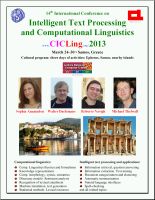 |
![]() Return to the top of the page.
Return to the top of the page.